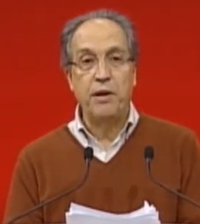| |||||||||||||||||||||||||||||||||||||||||||||||||||||||||||||||||||||||||||||||||||||||||||||
230 seats to the Portuguese Assembly 116 seats needed for a majority | |||||||||||||||||||||||||||||||||||||||||||||||||||||||||||||||||||||||||||||||||||||||||||||
|---|---|---|---|---|---|---|---|---|---|---|---|---|---|---|---|---|---|---|---|---|---|---|---|---|---|---|---|---|---|---|---|---|---|---|---|---|---|---|---|---|---|---|---|---|---|---|---|---|---|---|---|---|---|---|---|---|---|---|---|---|---|---|---|---|---|---|---|---|---|---|---|---|---|---|---|---|---|---|---|---|---|---|---|---|---|---|---|---|---|---|---|---|---|
| Registered | 8,864,604 | ||||||||||||||||||||||||||||||||||||||||||||||||||||||||||||||||||||||||||||||||||||||||||||
| Turnout | 5,415,102 (61.1%) | ||||||||||||||||||||||||||||||||||||||||||||||||||||||||||||||||||||||||||||||||||||||||||||
| |||||||||||||||||||||||||||||||||||||||||||||||||||||||||||||||||||||||||||||||||||||||||||||
| |||||||||||||||||||||||||||||||||||||||||||||||||||||||||||||||||||||||||||||||||||||||||||||
The 1999 Portuguese legislative election took place on 10 October. The election renewed all 230 members of the Assembly of the Republic.
The Socialist Party was aiming a second term under the lead of António Guterres, incumbent Prime Minister, as a good economy and Portugal's growing prestige, following the Expo 1998 and the support for the East-Timor cause, were strengthening the PS position.[1] Polls leading up to the election predicted a comfortable PS majority government. Adding to this, the main opposition party, the Social Democratic Party (PSD), was exiting an internal crisis after former leader Marcelo Rebelo de Sousa resigned in March 1999 amid disagreements with the CDS-People's Party leader, Paulo Portas, regarding a future PSD/CDS alliance for these elections.[2] The party elected, in a snap party congress in May 1999, José Manuel Durão Barroso as new leader.
Despite opinion polls predictions, the election results were labeled as a disappointment for the Socialists as the party failed to win a historical absolute majority by just one MP and barely improved their 1995 score, just 0.3 percentage points.[3] The disappointing PS score would create instability in Guterres second government in the years to follow.[4] The Social Democratic Party was still away from the preferences of the majority of the Portuguese people, after the ten years cycle under the lead of Cavaco Silva that had terminated four years before, and lost 7 MPs, compared with 1995, and gathered 32 percent of the votes. The Democratic Unity Coalition achieved an important climb in the scorecard, against those who predicted its irreversible decline after the end of the Socialist Bloc in the early 1990s. The CDS-People's Party was able to hold on to its 15 MPs after tensions with the PSD earlier that year. For the first time, the Left Bloc, formed after the merger of several minor left-wing parties became represented in the parliament after electing two MPs.
Turnout in this election was very low, only being surpassed by all elections after 2009 when turnout stands below 60 percent. Overall, voter turnout was only 61 percent of voters, one of the lowest ever recorded.
- ^ "World: Europe Portugal goes to the polls", BBC News, 10 October 1999. Retrieved 6 September 2020.
- ^ "PSD. O dia em que Marcelo desistiu de ser primeiro-ministro", Jornal i, 26 March 2019. Retrieved 6 September 2020.
- ^ "A noite que mudou a vida de Guterres ", Expresso, 16 October 2016. Retrieved 6 September 2020.
- ^ "Os orçamentos do PS e Daniel Campelo ", RTP, 8 September 2015. Retrieved 6 September 2020.






